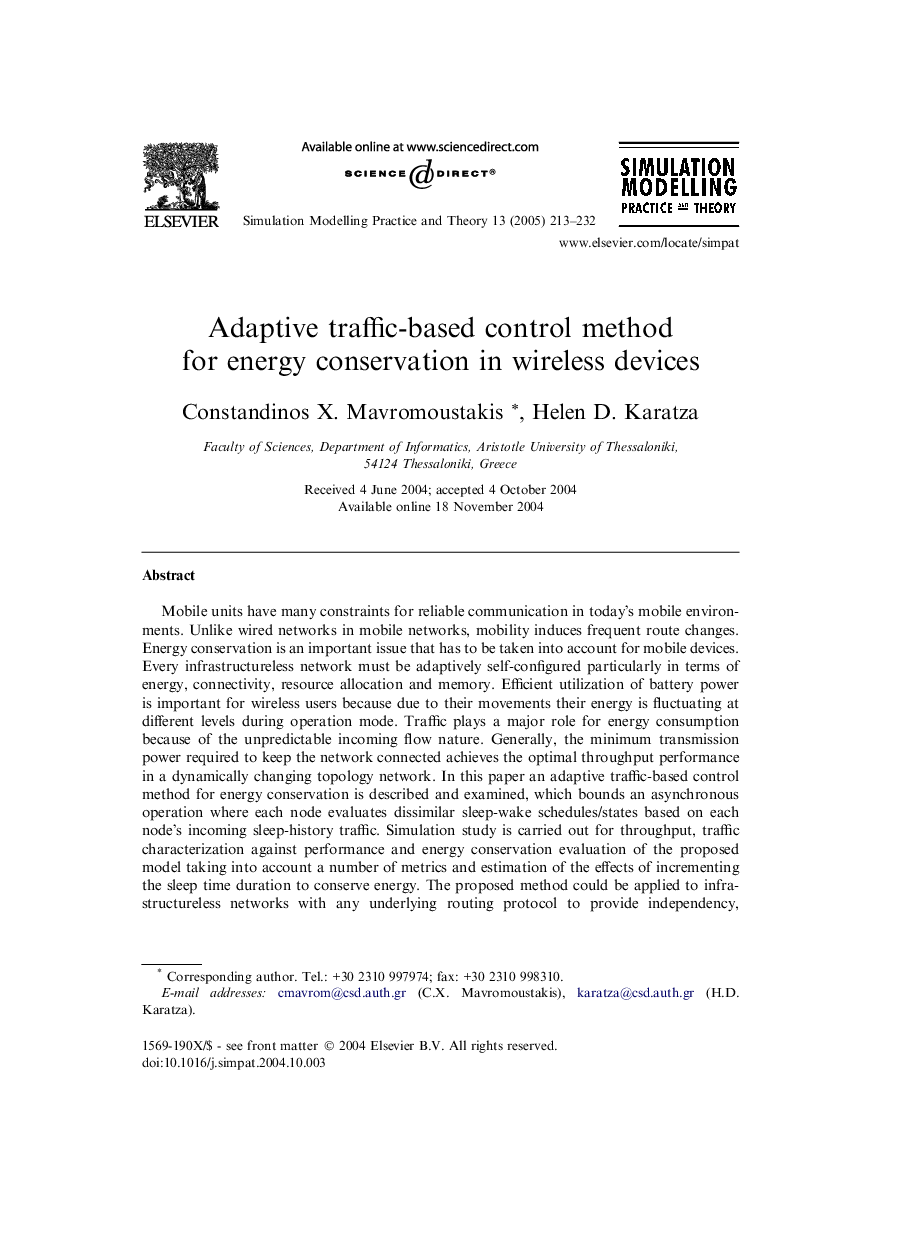| Article ID | Journal | Published Year | Pages | File Type |
|---|---|---|---|---|
| 10348735 | Simulation Modelling Practice and Theory | 2005 | 20 Pages |
Abstract
Mobile units have many constraints for reliable communication in today's mobile environments. Unlike wired networks in mobile networks, mobility induces frequent route changes. Energy conservation is an important issue that has to be taken into account for mobile devices. Every infrastructureless network must be adaptively self-configured particularly in terms of energy, connectivity, resource allocation and memory. Efficient utilization of battery power is important for wireless users because due to their movements their energy is fluctuating at different levels during operation mode. Traffic plays a major role for energy consumption because of the unpredictable incoming flow nature. Generally, the minimum transmission power required to keep the network connected achieves the optimal throughput performance in a dynamically changing topology network. In this paper an adaptive traffic-based control method for energy conservation is described and examined, which bounds an asynchronous operation where each node evaluates dissimilar sleep-wake schedules/states based on each node's incoming sleep-history traffic. Simulation study is carried out for throughput, traffic characterization against performance and energy conservation evaluation of the proposed model taking into account a number of metrics and estimation of the effects of incrementing the sleep time duration to conserve energy. The proposed method could be applied to infrastructureless networks with any underlying routing protocol to provide independency, portability, as well as “fair” collaboration among energy conservation mechanism and routing protocol.
Related Topics
Physical Sciences and Engineering
Computer Science
Computer Science (General)
Authors
Constandinos X. Mavromoustakis, Helen D. Karatza,
